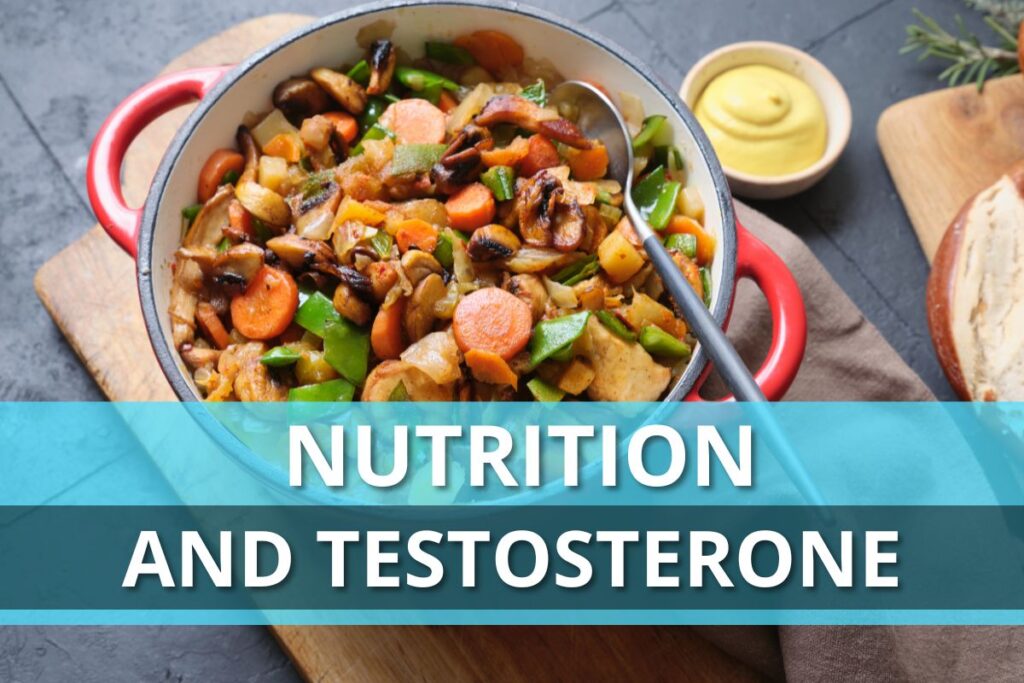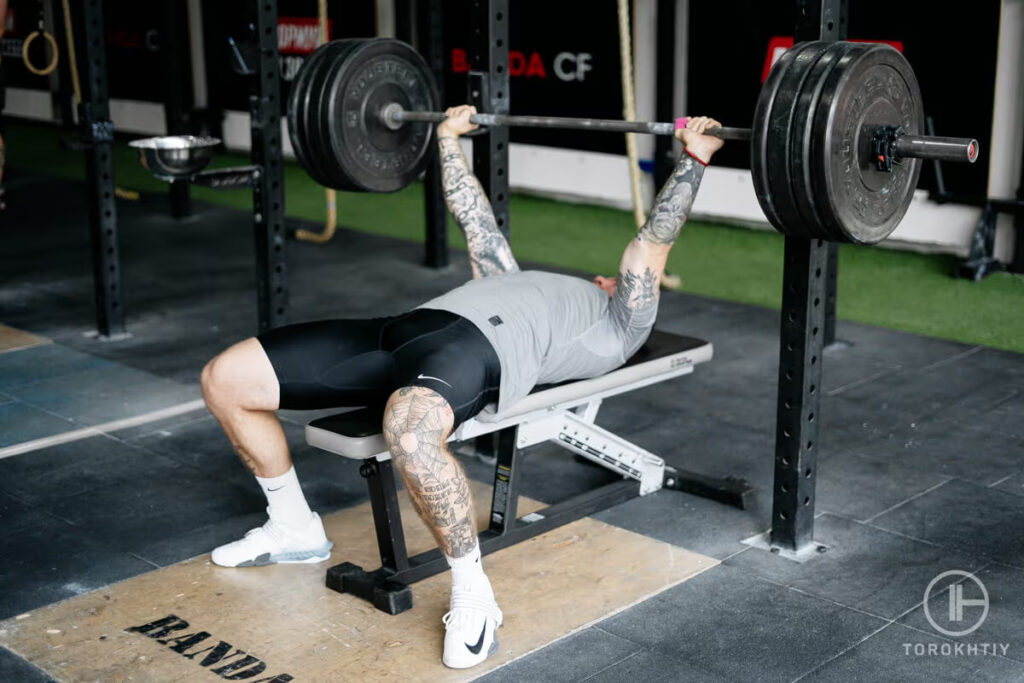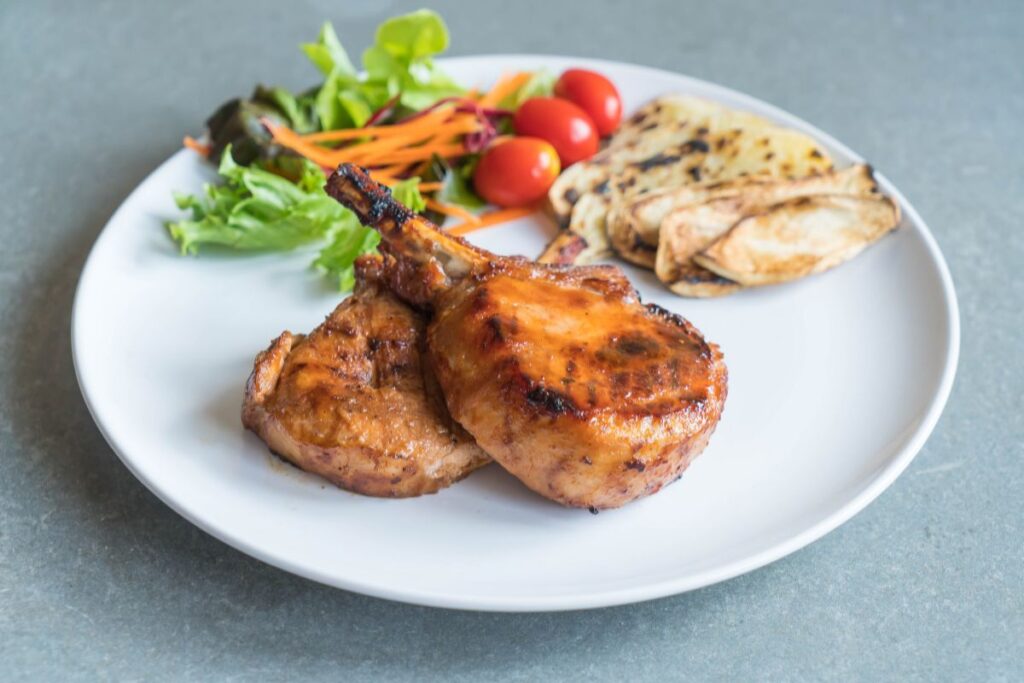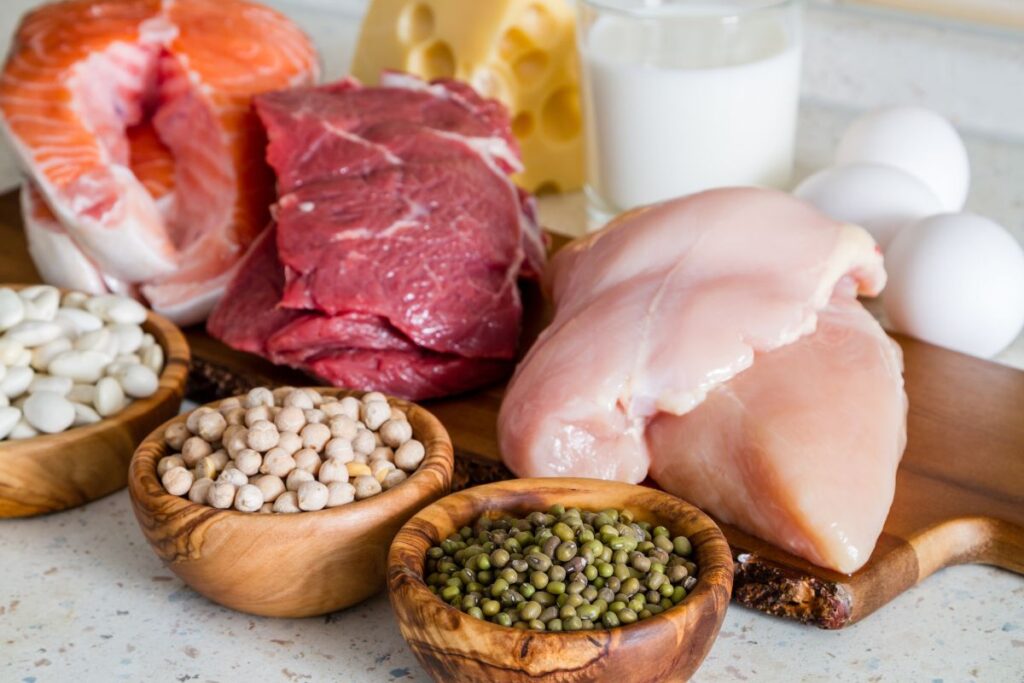Nutrition And Testosterone
Author:
Unlock your full potential by engaging with our experts and community! Have questions about your fitness journey or looking for expert advice on weightlifting techniques? Don’t hesitate — leave a comment below and Sergii Putsov will provide a personalized answer and insights to help you reach your goals.
Torokhtiy is reader-supported. Some links are affiliate links, and we may earn a commission at no extra cost to you. See our disclosure page for details.

Frankly speaking, I don’t like the whole idea of increasing the testosterone level. Because there is no reason to boost this hormone when its level is within the norm. Deficiency or excess of any hormone in the human body can bring more problems than bonuses. But all of us are eager to get the maximum from our bodies, and that’s why the efforts to increase muscle mass and strength by the means of testosterone boosting are perfectly clear.
Testosterone usually peaks in adolescence and early adulthood. But the men’s physiology is arranged in such a way that its key anabolic hormone begins to drop after the age of 30-40. Some men are lucky to have this level high lifelong, but most of them experience gradual testosterone decline of 1% on the average per year after the age of 30 or 40.
Nevertheless, I got 2 news for you: the good and the bad one. Let’s start with the bad one – the influence of nutrition on testosterone level is not significant. The good one – if you lack certain vitamins and minerals, then you can expect a testosterone boost after you properly balance your nutrition and cover all deficits.
First of all – sleep schedule, trainings and healthy weight

Full-fledged quality sleep for 7-9 hours, regular strength training and optimal weight and fat percentage maintenance. These are three pillars to keep your testosterone within the normal range. In one study diurnal testosterone level was reduced by 10-15% as a result of 5-hour sleep only for a week.
You may like it:
Regular strength training increases the level of the key male hormone for a short time after the training, they also help to improve your body composition and insulin sensitivity. It is very important to avoid overtraining, especially if you do both strength and endurance training.
Studies in 2013 have shown that weight loss is closely linked to testosterone level increase. But it is very important not to overcut your calories, and necessarily include fats in your diet during your pursuit of a healthy weight. Too strict calorie and fat deficit negatively impact testosterone level. Remember that fats provide our bodies substrates for anabolic hormone synthesis.
Zinc, magnesium and vitamin D
The shortage of every micronutrient listed above is related to testosterone level decline. Athletes that train hard and frequently are especially likely to have a deficit of zinc and magnesium, as both of these minerals get lost through the process of sweating. As for vitamin D – it is the only vitamin that is hard to get enough of solely from the food. So you need to pay additional attention to this vitamin unless you live in a region with never-ending sunshine and warmth.

I should warn you, that if your consumption of the abovementioned micronutrients is sufficient, then their additional intake with food or supplements will have zero influence over testosterone level. Whereas covering zinc, magnesium and vitamin D shortage will really help you boost it.
In our nutrition plans we give particular attention to zinc, magnesium and vitamin D, as we do know the importance of these micronutrients for weightlifters. So, you can just order one of our nutrition plans to save you a whole lot of time and effort.
Which products are the richest sources of these micronutrients? Let’s put them in order.
Best sources of zinc:
- Oysters, mussels;
- Pork, beef, chicken and turkey liver;
- Pumpkin, sesame, sunflower and chia seeds;
- Nuts (pine, cashew, pecan, brazil, almond, walnut, hazelnut);
- Beef, veal, pork;
- Wild rice;
- Beans, lentils, chickpeas, peanuts;
- Hard cheeses (Swiss, Gouda, Gruyere, Edam, Cheddar, Provolone);
Mind that zinc from animal products has higher digestibility. Substances contained in cereals, pulses and other plant products impede zinc digestion.

Best sources of magnesium:
- Pumpkin, chia, sesame and sunflower seeds;
- Nuts (brazil, pili, cashew, almond, walnut);
- Mash, chickpeas, beans, peanuts;
- Quinoa, wild rice, bulgur;
- Seaweed;
- Mackerel, fish of the salmon family;
- Fresh herbs.
Generally, all high-fiber food is rich in magnesium, too.
Best sources of vitamin D are oily and some types of non-oily fish.
- Mackerel;
- Fish of the salmon family;
- Herring;
- Sturgeon;
- Catfish;
- Halibut, sea bass, tilapia.
Also, you can consider berries and mushrooms that were exposed to ultraviolet light in commercial growth environments as a good source of vitamin D. Another source is products that were fortified with vitamin D.
Remember that to take zinc, magnesium and vitamin D supplements (especially in doses that exceed daily value) is not always a good solution. Supplements intake can lead to overconsumption of these micronutrients and cause negative symptoms and consequences. Try to get all nutrients from your menu and include the foodstuffs we mentioned before in your diversified diet.
Regarding vitamin D, try spending more time outdoors in the warm season and wear shorts and a t-shirt for a walk. In this case, you’re unlikely to need the vitamin supplement and your testosterone will be totally fine!
You might be interested in:
Why Trust Us?
With over 20 years in Olympic weightlifting, strength training, nutrition coaching, and general fitness our team does its best to provide the audience with ultimate support and meet the needs and requirements of advanced athletes and professional lifters, as well as people who strive to open new opportunities and develop their physical capabilities with us.
By trusting the recommendations of our certified experts in coaching, nutrition, and sports training programming, as well as scientific consultants, and physiotherapists, we provide you with thorough, well-considered, and scientifically proven content. All the information given in the articles concerning workout programming, separate exercises, and athletic performance, in general, is based on verified data.
The product testing process is described in more detail here.
Author: Sergii Putsov
Head of Sport Science, PhD
Best Results: Snatch – 165 kg,
C&J – 200 kg
Sergii Putsov, Ph.D., is a former professional weightlifter and National team member, achieving multiple medals in the 94 kg weight category at national competitions. With a Master’s degree in “Olympic & Professional Sport Training” and a Sport Science Ph.D. from the International Olympic Academy, Greece, Sergii now leads as the Head of Sport Science. He specializes in designing training programs, writing insightful blog articles, providing live commentary at international weightlifting events, and conducting educational seminars worldwide alongside Olympic weightlifting expert Oleksiy Torokhtiy.




Still have questions after reading our article? Unlock your full potential by engaging with our experts and community! Don’t hesitate — leave a comment below and Sergii Putsov will provide a personalized answer and insights to help you reach your goals.